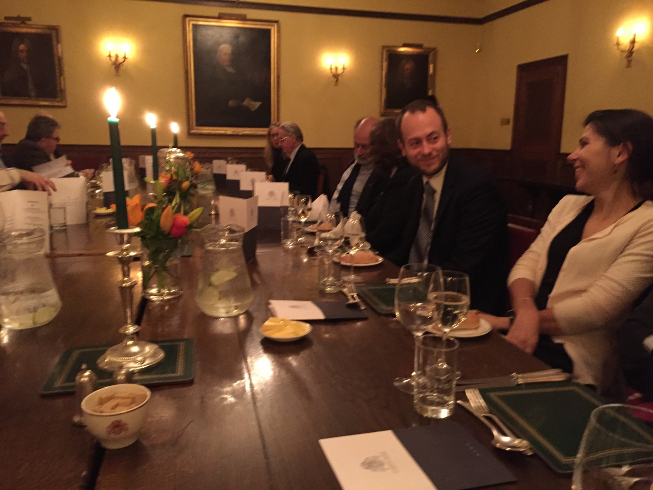This article relates to the genesis of this project. Subsequently we have broadened our scope to include developments of the 1960’s and 70’s.
Introduction
The thesis which this project seeks to test is that in both the British and French foreign ministries from the end of the First World War – when ideas of European integration gained ascendancy as a means to international security and prosperity – to the establishment of the European communities in 1957, permanent officials were at least as important as their political masters in promoting or blocking the path towards some form of European integration. Two principal research questions emerge from the project:
- How were the foreign ministries of Britain and France organised between 1919 and 1957 in their dealing with questions relating to European integration ? In particular which foreign ministry departments (eg in the case of the British Foreign Office, the Central European Department, the Western European Department and the League of Nations Department) were the most powerful and influential in driving the policies of these two states in relation to Europe : how did the power distribution fluctuate between the departments over time and how did this affect policy?
- Who were the permanent officials formulating policy on key issues affecting Europe? In particular, what were the social and educational backgrounds of these actors? How did this cultural context and training influence their world view and lead to formal or informal networks of like-minded individuals championing particular positions within their respective foreign ministries? And how did all these factors influence the thinking of permanent officials when they considered the issue of a more integrated Europe?
The conference was intended to broaden this approach to other European foreign ministries across the whole of twentieth century Europe, broadly conceived, either through comparative perspectives or single state studies. Papers were asked to consider themes such as: :
- organisation of foreign ministries or their reform
- education and background of permanent officials and diplomats
- networks and sociability in the diplomatic world
- schools or academies of diplomatic preparation, training and competitive exams
- impact of the European ideal on permanent officials
- influence of other government departments or agencies (finance, commerce, defence, central banks etc) on policies for European integration
- the policymaking process in foreign ministries
- bureaucratic politics and policy blocking tactics in foreign ministries.
Programme
NB: The working languages of the event were English and French.
FRIDAY 16 OCTOBER (7 West Rd., Alison Richard Building, Room SG2)
13.30-14.00 – Registration
14.00-14.15 Introduction : (John Keiger, University of Cambridge)
Chair : Sylvain Schirmann (Institut d’Etudes Politiques, Strasbourg)
Sociology and bureaucratic politics of foreign policymaking
14.15-14.35 – John Keiger (University of Cambridge) : ‘Reforming the Quai d’Orsay for the post Second World War world: recruitment, training and mission’.
14.35- 14.55 – Christian Lequesne (Sciences Po, Paris) :‘Being a French diplomat in 2015 : recruitment, career and ideology’.
14.55-15.15 – Gaynor Johnson (University of Kent): ‘The Foreign Office and the concept of security, 1919-1947: variations from departments to personalities.
15.15-15.35 – Thomas Raineau (European University Institute, Florence): ‘“A conspiracy of like-minded men”. The Foreign Office, Whitehall and the unification of Europe, 1947-1957’.
15.35-16.15: Discussion
16.15-16.45 Tea/Coffee
Chair : Chantal Metzger (Université de Nancy)
Nouveaux acteurs, nouveaux réseaux ?
16.45-17.05 – Corinne Schroeder (Archives Nationales, Luxembourg): ‘Le développement du ministère luxembourgeois des affaires étrangères (1930-1973)’.
17.05-17.25 – Bruna Bagnato – (University of Florence): ‘Un renouvellement manqué. La diplomatie italienne de la chute du fascisme au traité de paix (1943-1947)’.
17.25-17.45 – Valentina Vardabasso – (Sorbonne, Paris 1): ‘Le Ministère italien des affaires étrangères et l’élaboration de la politique européenne (1948-53)’.
17.45 – 18.15: Discussion
End of day: return to Arundel House Hotel, Chesterton Lane.
19.30 Conference dinner, St John’s College, Wordsworth Room, Old Court
*****
SATURDAY 17 OCTOBER (7 West Rd., Alison Richard Building, room SG2)
Out with the old, in with the new?
Chair: Emmanuel Mourlon-Druol (University of Glasgow)
9.15-9.35 – Laurence Badel (Sorbonne, Paris 1): ‘Around Olivier Wormser, the new influence of economic diplomats in French policymaking towards European integration (1930-1957)’.
9.35-9.55 – Marion Aballéa (Institut d’Etudes Politiques, Strasbourg): ‘Les services extérieurs de la diplomatie française entre expertise et marginalisation:l’exemple de l’ambassade de France à Berlin face à la recomposition de l’ordre européen (1919-1932)’.
9.55-10.15 – Evgeniia Obichkina (MGIMO, Moscow): ‘La prise de décision en matière de politique étrangère soviétique de Staline à Brejnev’.
10.15-10.35 – Adam Rolewicz (University of Kent): ‘The “Grand Design”: The Foreign Office Western Department and an “Alternative Europe”, 1957-9’.
10.35-11.15 : Discussion
CONFERENCE CLOSE
***********
14.30 – 16.00 Assemblée générale de l’Association Internationale d’Histoire Contemporaine de l’Europe (AIHCE), Alison Richard Building, SG2.

